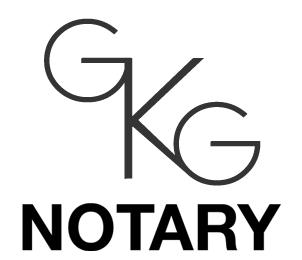A Power of Attorney (POA) is a legal document that grants one person (the agent or attorney-in-fact) the authority to act on behalf of another person (the principal) in various matters. The scope and duration of this authority can vary depending on the type of POA created. Here’s an overview of the key elements and types of Power of Attorney:
Key Elements of a Power of Attorney:
- Principal: The person who grants the authority.
- Agent (Attorney-in-Fact): The person who is given the authority to act on the principal’s behalf.
- Scope of Authority: The specific powers granted to the agent, which can be broad or limited.
- Duration: The time period during which the POA is effective.
- Revocation: The process by which the principal can cancel the POA.
Types of Power of Attorney:
- General Power of Attorney:
- Grants broad powers to the agent to act on the principal’s behalf in a variety of matters, such as financial and legal affairs.
- Typically ceases to be effective if the principal becomes incapacitated.
- Durable Power of Attorney:
- Similar to a general POA but remains in effect if the principal becomes incapacitated.
- This type of POA is often used for long-term planning.
- Special or Limited Power of Attorney:
- Grants the agent authority to act in specific situations or for specific tasks (e.g., selling a property, managing certain investments).
- The scope is restricted to the specified duties.
- Springing Power of Attorney:
- Becomes effective only under certain conditions, such as the principal’s incapacitation.
- The triggering event must be clearly defined in the document.
- Medical Power of Attorney (Healthcare Proxy):
- Allows the agent to make healthcare decisions on behalf of the principal if they are unable to do so.
- Often used in conjunction with a living will.
Steps to Create a Power of Attorney:
- Determine the Type: Decide which type of POA suits your needs.
- Choose an Agent: Select a trusted individual to act as your agent.
- Draft the Document: Use a legal template or consult with an attorney to draft the POA document. Ensure it complies with state laws.
- Sign the Document: The principal must sign the POA, and some states require notarization or witnesses.
- Distribute Copies: Provide copies to the agent, relevant institutions (e.g., banks, healthcare providers), and retain a copy for your records.
Revoking a Power of Attorney:
- Create a Revocation Document: Draft a written statement revoking the POA.
- Notify the Agent: Inform the agent in writing that their authority is revoked.
- Notify Third Parties: Inform any institutions or individuals who were aware of the POA.
- Destroy Copies: If possible, collect and destroy all copies of the old POA.
A Power of Attorney is a powerful tool that can help manage your affairs efficiently. However, it’s crucial to choose a reliable agent and clearly define their powers to prevent misuse. Consulting with a legal professional can ensure that the document meets your needs and adheres to relevant laws.


